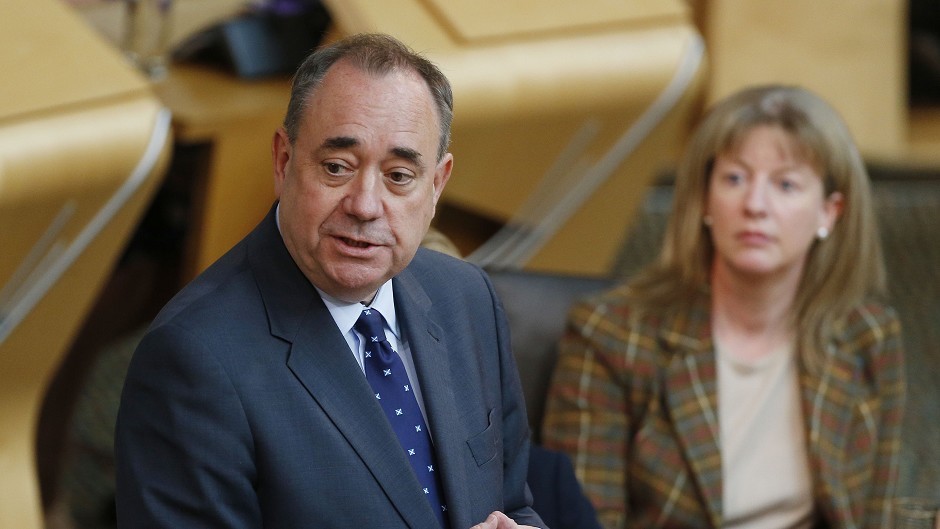First Minister Alex Salmond has accused Aberdeenshire Council leaders of putting the “frighteners” on people by pursuing them for unpaid poll tax bills they cannot legally collect.
He claimed the move was “deeply cynical” because there was a 20-year time limit on local authorities when it came to launching new action to pursue debt.
Mr Salmond called a radio phone-in programme from his home in Strichen this morning to criticise the local authority which announced on Monday it planned to use the electoral register – updated due to the independence referendum – to try and claw back £1.7million in unpaid poll tax.
The Aberdeenshire East MSP said the move directly led to the Scottish cabinet deciding on Tuesday that it would take legislative action to cancel a total of £425.3million in debt.
Mr Salmond said it decided to act because statements being made by councils like Aberdeenshire “would render some of our fellow citizens into a state of some fear and distress”.
The community charge, or poll tax, was introduced by the Conservatives in 1989 and scrapped four years later after public protests.
But Aberdeenshire Council leader Jim Gifford, who also took part in the programme, insists that “debt is debt” and the council has a responsibility to pursue people who owe money.
He told the first minister that the £1.7million figure was provided to him by local authority officials and admitted he had no idea how many debtors have died in the last 25 years.
He also confessed he did not know how much money the local authority had clawed back in the last year.
Addressing Mr Gifford, the first minister said: “For starting new proceedings it is a 20 year limit for any debt for a council.
“It is patently obvious that the only figure you have in your head is £1.7million, which is a totally phantom figure and money you could never have collected in a month of Sundays.
“Your colleagues who started talking about poll tax arrears on Monday would only have done that with the cynical motive of putting the frightners on people who joined the electoral role.
“I think that is deeply cynical.”
Mr Salmond said Finance Secretary John Swinney informed local government organisation Cosla of the plans to write off the “ancient” 25-year-old debt before he made the announcement in parliament, which is his prime duty as first minister.
“While Jim Gifford in Aberdeenshire believed he wanted to hound people for a 25 year-old debt which he could not do anyway, other councils like Perth and Kinross and Fife made it clear they were not going to do that,” he added.
“So if we had not acted we would have had the ridiculous position of Jim Gifford announcing one policy for Aberdeenshire, not that he could implement it, while a different policy was being pursued by Perth and Kinross.”
Mr Gifford said the controversial decision sent out a “terrible message” to people considering not paying council tax.
“We use information from all kinds of sources to recover money owed to us, we do not differentiate between one debt and another,” he added.
“If we are asked to write off these debts we will do that but we expect to be fully compensated for the amount of money sitting on our books from whatever source.”
Mr Gifford said he was “not bothered” if the money came from the Scottish or UK government as long as it was paid.
Cosla president David O’Neill said the first minister’s announcement was one of the “oddest decisions” ever to have come out of the Scottish Government.
“There has been a complete absence of any consultation on this,” he added.
“At the moment, the Scottish Government have no idea how many councils are making part or total use of the expanded electoral register, they don’t know how many individuals in the community would be affected by this.
“The one thing we do know is that from the government’s own figure it is around £425million of public money which the government is intent on making it more difficult to collect.
“Cosla is very sensitive to the requirement to increase political engagement and electoral registration but everybody recognises that becoming involved in the political process demands responsibility as well as rights.”
Mr O’Neill said the organisation believed the two concepts went hand-in-hand.
“If that is not an accepted principle, we are very worried about the precedent that writing off this debt would create,” he added.
